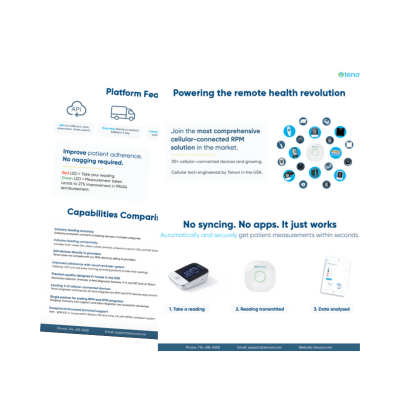Chronic conditions, such as hypertension, diabetes, and cardiovascular diseases, can lead to serious complications if left unmanaged. Chronic disease education is vital to help patients manage persistent conditions. From a cost perspective, chronic diseases in the United States contribute to approximately 90% of healthcare expenditures, and the aging population in America is growing at a faster rate than ever.
This article explores the growing need for effective chronic care solutions that educate and empower patients to manage chronic illnesses. We discuss a study published in the Journal of Clinical and Nursing Research that focuses on the effects of combining health education with chronic disease management to improve emotional well-being, disease understanding, and self-management skills in senior hypertensive patients.
Integrating Health Education with Chronic Disease Management
The study integrated health education with chronic disease management for 64 elderly patients, divided into two groups, who were diagnosed with hypertension in a community setting. The control group received conventional treatment. The second experimental group followed a combined chronic disease education model with health education sessions and personalized chronic disease management practices.
The experimental group was also set up with a nursing team that provided personalized health education with communication strategies to suit individual comprehension levels. The approach was focused on promoting healthy habits and guiding patients on dietary control, medication adherence, and physical activity. Additional support was offered for quitting smoking and reducing alcohol consumption.
Patient records were closely monitored, and vital signs were uploaded monthly to assess progress and adjust treatment. Nurses conducted regular follow-ups, addressing physical and emotional needs to ensure patients were supported in managing their hypertension.
Chronic Disease Education Research
The study’s results showed clear benefits for patients in the experimental group. The patients had significantly lower blood pressure levels than the control group. On average, their systolic blood pressure was reduced to 118 mmHg, compared to 133 mmHg in the control group. Their diastolic blood pressure was 80 mmHg, compared to 86 mmHg.
In addition to better blood pressure, patients in the experimental group experienced lower levels of anxiety and depression. Scores on the Self-Rating Anxiety Scale (SAS) and Self-Rating Depression Scale (SDS) showed that emotional distress was lower for these patients.
By combining chronic disease education with health management, these patients also learned the value of regular blood pressure checks. They improved their lifestyle choices, which led to better self-management and overall health.
Key Benefits of Chronic Disease Education
The study highlighted three main areas where chronic disease education benefited elderly hypertensive patients.
Enhanced Disease Cognition
The specialized approach empowered patients with essential knowledge about hypertension. This included understanding normal blood pressure ranges, the risks associated with high blood pressure, and lifestyle choices that could mitigate these risks. Patients in the experimental group scored significantly higher in disease cognition, demonstrating how targeted education helps elderly patients grasp the importance of proactive health management.
Improved Emotional Health
Specialized education and support were shown to alleviate symptoms of anxiety and depression. These symptoms are common in elderly individuals managing chronic illnesses. The experimental group reported lower levels of anxiety and depression compared to the control group. A better understanding and control over their health seems to have contributed to a more positive emotional outlook.
Better Self-Management Practices
Effective chronic disease education helped promote healthy behaviors such as quitting smoking, reducing alcohol consumption, adhering to medication schedules, and engaging in regular exercise. In the experimental group, patients demonstrated higher adherence to healthy practices and consistently monitored their blood pressure. These results demonstrate the role of education in fostering self-sufficiency and improved health outcomes.
The Value of Chronic Disease Education in Community Health Management
The study shows the value chronic disease education can have in managing hypertension among elderly patients. This integrated approach enhanced disease cognition, emotional health, and self-management capabilities. With a deeper understanding of options for managing hypertension, patients are empowered to make informed decisions about their health, which may reduce complications and improve quality of life. This combined chronic disease education and management model offers a scalable solution for community-based healthcare, potentially reducing the burden on healthcare systems and promoting patient independence.


